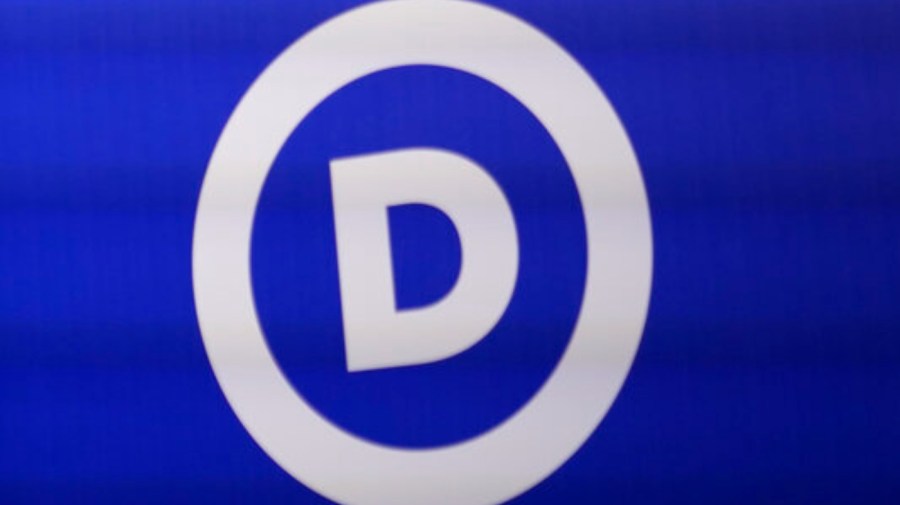
The Democratic National Committee (DNC) is set to host four candidate forums this month as the party looks to replace outgoing Chair Jaime Harrison.
Eight candidates are running to take the helm of the DNC, though state party chairs Ken Martin of Minnesota and Ben Wikler of Wisconsin have emerged as the front-runners.
The other candidates running are former Maryland Gov. Martin O’Malley, New York state Sen. James Skoufis, former presidential hopeful Marianne Williamson, former Department of Homeland Security official Nate Snyder, attorney Jason Paul and former congressional candidate and entrepreneur Quintessa Hathaway.
Whoever wins the role Feb. 1 will become the new leader of a party desperately looking for a reset following November’s devastating elections.
Here are five things to watch for ahead of the DNC’s first forum:
How do the candidates differ on their visions for the Democratic Party?
Many of the candidates running for DNC are largely aligned ideologically, though Williamson has garnered a reputation as a more outspoken progressive. Yet some common themes have emerged among the candidates on how to approach the job.
Wikler and Martin, for example, have stressed more focus on state party infrastructure. The two have also said that the party should be competing at all levels of the ballot.
Yet several fault lines have emerged, particularly over relationships with party consultants and personal track records.
Skoufis and Williamson, in particular, have not been shy in criticizing the role of party consultants within the DNC.
“The way we rebuild is first getting away from these consultants who are telling us to write off 43 out of 50 states every four years and telling us where to not show up,” Skoufis said at a candidate forum hosted by the DNC Labor Council. “We’ve got to show up everywhere again.”
During the same forum, Williamson said a “mere pittance” went to state parties, while “all of the money practically kept with the consultancy class.”
How do the candidates address Trump?
Another key question will be how the candidates take on President-elect Trump, particularly given many voters in battleground states such as Arizona, Nevada and Wisconsin split their tickets for Trump and Democratic Senate candidates.
“You have to give people a sense of who you are and who the party is, who we’re fighting for, and why. And that means, you know, if we’re focused the whole time on just resisting Trump, we’re not giving people a sense of who we are and why they should support us,” Martin told The Hill in an interview last year.
O’Malley suggested during the DNC Labor Council forum that the party needs to better link how Trump’s actions impact everyday people.
“I would like for us to create a center for digital communications excellence so we can speak every day to the economic concerns of our hardest working people,” he said. “Every time Donald Trump does something that harms and hurts the economic security of the American people, we need to be linking that immediately back with the communications necessary to win hearts and minds.”
Are there fireworks?
So far, the DNC chair race has been a largely cordial affair. Still, some members have started to take a few jabs at others, including during the Labor Council forum.
“You want someone who promotes having just lost his state by just a small margin, then I’m not your guy,” Skoufis said at the forum, apparently referencing Wikler. “I care about winning, not losing by less.”
One thing to watch for is whether candidates make the race more personal or if they steer clear of trying to make the election volatile.
Does anyone emerge as the clear front-runner?
So far, Martin and Wikler have been seen as the two favorites in the DNC chair race. Martin’s team has said he has more than 100 endorsements from DNC committee members, and the Minnesota Democrat has in recent days announced endorsements from a handful of state delegations, including Tennessee and Oklahoma.
Wikler, meanwhile, has received nods from several high-profile groups and Democrats, most notably Senate Minority Leader Chuck Schumer (D-N.Y.) and Sen. Brian Schatz (D-Hawaii), among others.
O’Malley’s team told The New York Times that he received more than 60 endorsements from members, while Skoufis told the Times he had the backing of 23 members.
Several high-profile Democrats who have not weighed in yet include President Biden, Vice President Harris, House Minority Leader Hakeem Jeffries (N.Y.) and Reps. Nancy Pelosi (Calif.) and James Clyburn (S.C.).
Does Williamson draw headlines?
Williamson, a two-time presidential hopeful, is a long shot in the race to replace Harrison, though she’s remained a recognizable face in party politics as an outspoken progressive who’s positioned herself as an outsider within the party.
“The Democratic Party needs to get off its high, elite perch and actually talk to the people of the United States,” she told The New York Times in announcing her candidacy.
She’s also been a critic of the DNC itself, arguing it was “rigging” the primary system when it reordered the states that cast ballots early in the presidential primary.
Though she faces a steep uphill climb, her provocative remarks could attract headlines after the forum.












